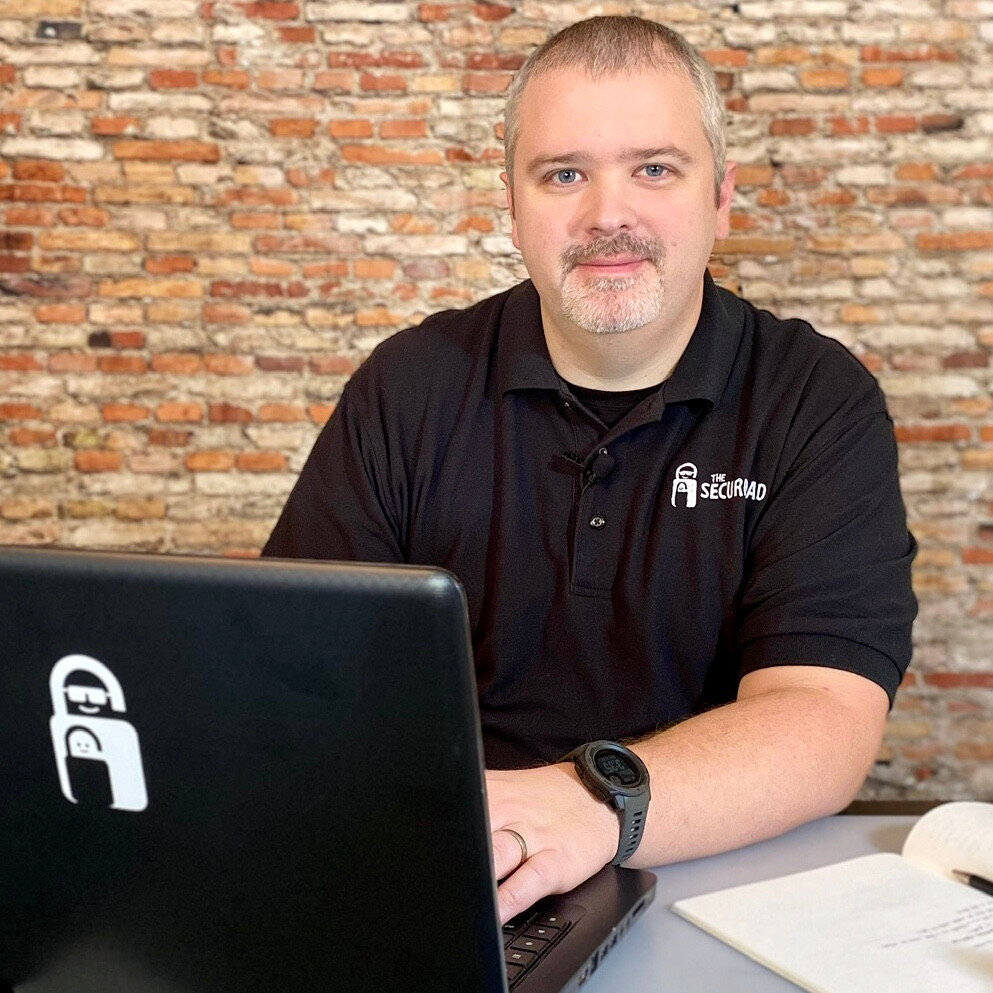If you are a parent reading this, then I can assume a few things about you. Chances are you were born before the internet. You might have been lucky to have a tablet-free childhood where you played outside, wore a He-Man t-shirt, and saw an ashtray at a McDonald’s.
Today’s kids are growing up in a completely different world. While we were introduced to the internet in middle school or later, kids today are becoming YouTube stars at the same stage of life.
Which leads us to an important question: What does the internet know about our family?
While we can take a deep dive into a big question like this, we’re going to start with something called open source intelligence. While this does sound like something from Burn Notice, it’s actually something real that we need to be aware of. There are tons of places people can go and find out information about us that we would rather them not know.
What is OSINT?
Open sourced intelligence is commonly defined as data and information that is available to the general public. You’ll see this abbreviated as OSINT online. This is information contained on the surface web like sites such as Google and social media. Even Zillow!
It’s important for us to know what information is out there about us even though we’re everyday citizens who pay our bills and go to work. By knowing what information is openly available about us and our children, it will raise our security awareness and protect our families.
If we can know what other people can find out about us, we can be ready to stop scammers, thieves, and creeps.
Here are some common pieces of information that people can find out about us with just a few clicks:
Your home address
Schools your children attend
Phone numbers - mobile and home numbers
Email addresses - adult and children
IP Address
Photos and videos
Teams your children play on
Social media accounts - adult and children
Company profiles
Your house of worship
Amazon Shopping lists
Court records
Real estate transactions and listings
Freaked out now? Don’t worry. You might be wondering how this kind of information can be out there about you. Most of the information comes from data brokers. In simple terms these are websites that legally buy your information from third parties and compile them all together to create enough information for someone to profile you without ever laying eyes on you.
This is where people search sites compile their information on us. For a few dollars, people search sites will give you a ton of information on a person in just a few clicks. I really don’t like these sites, but they are legal and the information they have is legal to sell.
A good source of what a people search site can provide and how it’s done is at White Pages. https://www.whitepages.com/person You can read for yourself all the ins and outs of how the site works.
But fortunately for us, these data broker sites also have to offer an opt-out. Meaning you can tell that company to remove your information for free. So I highly recommend you do that.
Now there are tons of these people search sites out there and their opt-out process is different for each one. (Rad, right?) But there are companies that will work to remove that information for you for a fee. This might be money well spent for you.
One such company you can check out is DeleteMe by Abine. https://joindeleteme.com. They remove information from sites like this and continue to monitor you year round. Just because you ask a site to remove your information once, does not mean they can’t buy it again later. (Super rad.)
We Share Some Blame
While data brokers are trouble enough, the best source of information about you online comes from social media. Yep, that’s right. We’re telling on ourselves.
We are self-reporting on where we are, who we are with, where we work and places we frequent. Like Spencer Coursen tells us in his book The Safety Trap, we often overshare important information about ourselves and our families. So we share some of this blame.
By the way, check out Spencer Coursen on The Secure Dad Podcast and also on The Safest Family on the Block.
Here are some questions I want you to ask yourself before you post online again.
Is this post going to be too personal?
Could someone figure out where I live with this post?
Am I sharing too much about my children?
Will my post age well?
What are my children posting?
Will anyone actually care what I post?
We all need to remember that last question. I know I think about this one a lot and I think it would help many of us feel better if we just kept our personal feelings… well personal.
The Government
There is some information out there about us that we can’t do anything about and that’s what the US government has deemed public information.
Generally, we can’t ask our federal and local governments to remove our public records. And just because your county might not have a great online database, public records are still accessible in person at government offices. This means as much as we try, we can’t completely remove all of our public information from the internet.
In general the things that I discuss at The Secure Dad and Jason talks about at The Safest Family on the block is personal safety that is part of the broad spectrum of open source intelligence.
We’re talking about saving your vacation pictures for social media until you get back home. Not leaving your phone unattended at a restaurant. Making sure you close your garage door when you are away from home. We just need to keep in mind that what we do can be used as information about us and our families.
Open source intelligence really is a very broad topic. Trust me, you can really go down the rabbit hole with this one. So for today, keep your personal information off of social media and look into a service that will remove your information from data brokers. Then, take the time to integrate your understanding of OSINT into your daily life.




